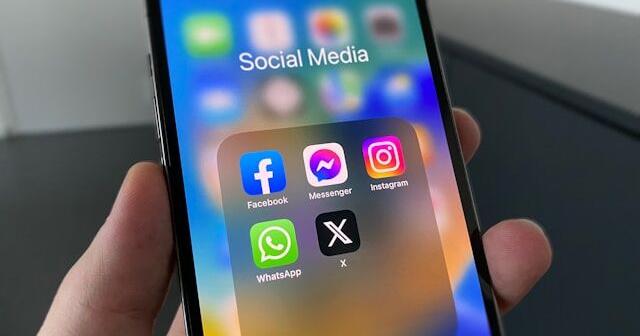In an age where the digital world often feels more tangible than the real one, methods of protest have evolved dramatically. Among these modern methods is the unique trend of blocking celebrities on social media. Although this act may seem insignificant at first glance, it has become a clear symbol of defiance and a contemporary expression of protest culture.
Blocking someone on social media is a simple action: it prevents them from seeing your content, interacting with you, or viewing your profile.
While blocking has traditionally been used to avoid harassment or unwanted attention, it has more recently become a tool of political and social expression.
For many people, celebrities are more than just entertainers: they embody ideals, are influential people, and often act as spokespeople for political and social causes. When a celebrity's actions or words clash with the values of their audience, blocking them becomes a form of personal and collective protest.
The importance of blocking lies in its simplicity and the message it conveys. Unlike vocal criticism, blocking is a silent, yet powerful form of detachment.
It means a withdrawal of the most valuable currency in the age of social media: attention.
Blocking a celebrity is, in effect, saying, “I don't support you. I don't want to hear your opinion.”
This form of protest is particularly powerful because it attacks celebrities where it hurts: their influence and impact.
Because social media algorithms prioritise engagement, a decline in follower counts and interactions could diminish a celebrity’s digital influence, making their endorsements less valuable and their voices less likely to be heard.
Blocking celebrities is just one aspect of a broader protest culture that has taken root in the digital age, a culture characterized by immediacy, accessibility and the ability to reach a global audience.
Social media platforms such as X (formerly known as Twitter), Instagram and TikTok have democratised protests, allowing people from all walks of life to voice their dissent and rally support for different causes.
We can see this recently in the lack of public response to the ongoing conflict in Palestine. When conflict erupts overseas, many are outraged by the public response, or lack thereof.
Celebrities can reach large numbers of people through their large platforms and thus have a significant influence on public opinion, and many interpret social engagement as a duty and responsibility that comes with that platform.
Criticism of celebrities and influencers' use of the platform erupted after this year's Met Gala, where tickets cost an estimated $75,000, which, combined with the event's theme, left many media consumers feeling uncomfortable.
This sparked Blockout 2024 (also known as Operation Blockout or Celebrity Block Party), an online movement that called on users of the platform to target celebrities who were not using the platform to call for a ceasefire or speak out on other humanitarian issues.
“Now is the time for the people to execute the digital guillotine, the so-called 'Digitine,'” Lay, a TikTok content creator better known by her social media handle @ladyfromtheoutside, said in a video post on the platform.
“It's time to block celebrities, influencers and wealthy socialites who are not using their resources to help those in need. We gave them a platform, it's time to take it back and take our views, likes, comments and money,” Ray said.
Beyond blocking, social media tools such as hashtags, viral posts and online petitions have also become new tools for activism. Movements such as #MeToo, #BlackLivesMatter and #ClimateStrike have already gained momentum through digital platforms, leveraging them as instruments of change.
In these circumstances, blocking public figures is a natural extension of digital protest, offering a personal and collective way to counter perceived injustices and failures.
Past incidents are examples of the impact of blocking as a form of protest: in 2020, many fans blocked J.K. Rowling, author of the Harry Potter series, after she made controversial comments on transgender issues.
Similarly, Kanye West, now known as Ye, has been blocked on social media and boycotted by many of his fans due to his actions and controversial statements.
These blocks were intended not only to distance West from his views, but also to reduce his influence and platform, weakening his ability to spread harmful speech.
Blocking celebrities as a form of protest highlights the shifting influence and reach of celebrities in the digital age.
This underscores the fact that audiences are no longer passive consumers of content, but active participants in cultural and political debate. This shift has big implications for celebrities, who must navigate the complex terrain of social media more carefully and consciously.
This trend reflects a society-wide shift towards accountability and ethical consumption. Just as consumers are becoming more careful about the brands they support, they are also becoming more careful about the celebrities they follow.
But while the movement aims to ethically moderate online content and speech, it can also result in celebrities taking a performative approach to activism, leading to accidental advocacy based on perceived provocation or threat rather than genuine concern for the cause.
As social media continues to evolve, methods of protest will evolve too: blocking celebrities will likely remain a popular way to express digital disgust, but it will be accompanied by new and innovative ways to voice discontent and demand change.

